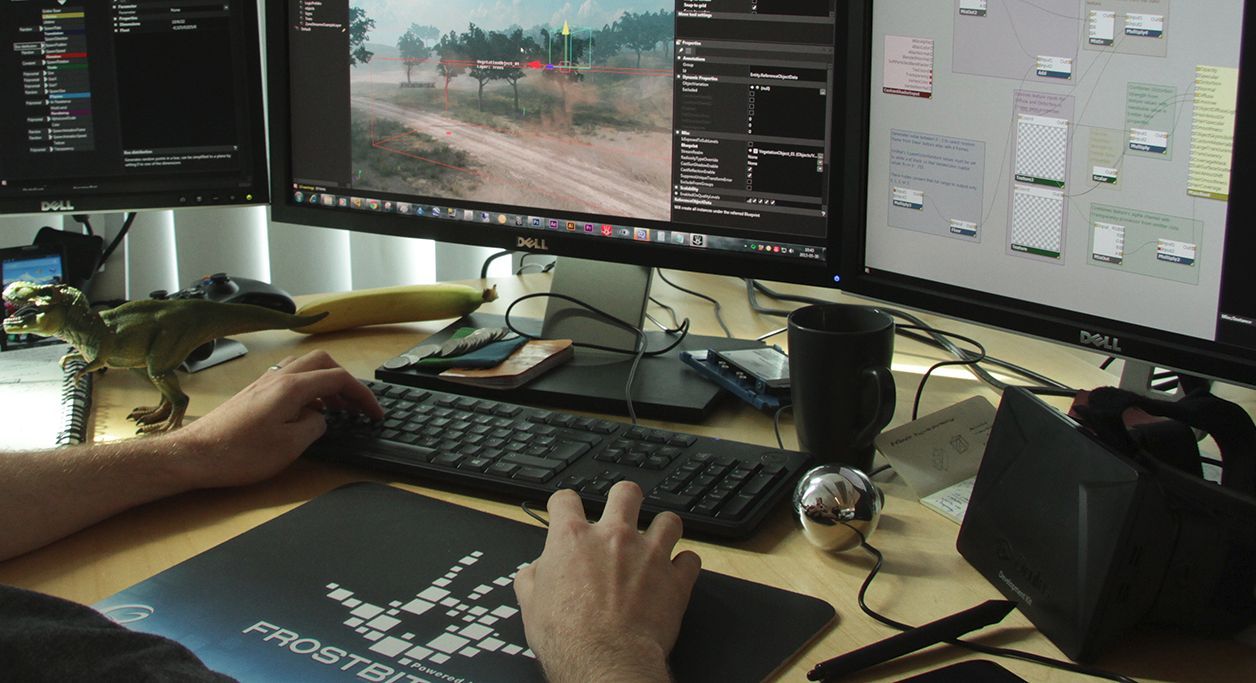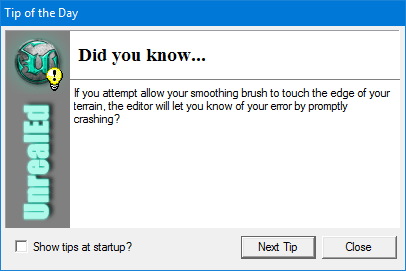
The following was originally posted on Tumblr on May 19th, 2017. It is reposted here in case that account gets put in the ground by the robots. All typos, profanity and bad attempts at humor are kept as-is.
Backdrop Image Credit: Walter Marino
On the PC platform, now perhaps more than ever, releasing mod tools for your game is a pretty damn good way to win hearts and minds. Bethesda’s ongoing Elder Scrolls and Fallout franchises make their name and many of their sales on their obscene levels of user-generated content (and, let’s be honest here, the levels of obscene user-generated content...) to the point where many people half-jokingly claim that the fanbase often finishes the games for the colossal publisher through “Unofficial Patch” bugfix mods. 2K’s XCOM 2 responded to the horrifying and hacky methods (likened by the original developers to sadomasochism) used by fanatical fans to modify the first game by releasing full-featured tools and contracting modders to produce high-quality sample content. And of course, the original Doom continues to be an ever-flowing tap of new content decades after its release.
But just as apparent as mod support is a lack of mod support. When EA DICE, who openly took great inspiration from Battlefield 1942’s legendary Desert Combat mod for future games in the franchise, dropped mod support, it raised more than a few eyebrows, and when Doom 2016 elected to include simple, multiplatform in-engine tools instead of the more traditional external level editors that defined the series, it confounded many... especially in the face of its precursor’s legacy.

DICE famously dropped mod support with the transition to Frostbite.
Image Credit: Electronic Arts
Now, official tools aren’t exactly necessary in this day and age. There’s an eager army of hackers and reverse-engineering enthusiasts out there eager to document file formats, build powerful tools and generally blur the lines between demonstrations of technological prowess and middle-fingers towards copyright law... but try as they might, they typically won’t be able to match the capabilities possible with an officially-supported solution that doesn’t have to reinvent every wheel just to get Polygon One into the engine.
It’s not uncommon in the circles I tend to frequent for people to curse the lack of modding tools for modern games, and to frequently blame the lack of such tools on the grim spectre of DLC. Why, after all, would somebody buy a Horse Butt Helmet add-on when they could download a Realistic Lore-Friendly Immersive Ultra-Ultra-HD Anatomically Correct-Horse Butt Helmet mod for free? Personally, I don’t buy that as a reason, and it goes back to the examples listed at the top of this article – Elder Scrolls, Fallout and XCOM 2.

CapnBubs Accessory Pack, an example of a high-quality mod for XCOM 2.
These three games have plentiful DLC on top of their mod support, and in many cases mods develop around individual DLCs, augmenting their feature-set and content, creating something of a self-feeding ecosystem where DLC doubles as a pile of new functionality and professionally-made assets for the code-oriented to play with. And they aren’t the only ones that share this weird relationship with their player base. They’re just the most prominent examples.
So, if the obvious strawman answer is wrong, what’s the real reason? Well, there isn’t really one true overriding thing we can all point our fingers and scream angrily at like Donald Pleasance, it’s generally a combination of several smaller factors...
Internal Affairs

Yes, that is half an hour of credits. Well, more like 25 minutes once you cut the ending out. Point being, lots of people work on this stuff.
The development of a modern videogame is ridiculously complex in this day and age. It’s practically like gluing a Pixar movie to a suite of business software, with small armies of experts in different fields applying their crafts. Often from all over the world, once multiple studios and international outsourcing come into the picture.
This necessitates a strong online network for version-control, documentation and communication, and in many cases internal development tools are deeply tied into this system. You can even see this in some mod-friendly engines – try saving a new particle system in the Source Engine, and it’ll scream at you to check your work into Valve’s internal (and obviously inaccessible) subversion repo. In many cases, untangling the tools from their hardwired networks would require a titanic amount of effort, which leads me to the second common reason...
Time Is Money

Doctor, it hurts when I do this.
Image Credit: Running with Scissors
Even in situations where development tools aren’t attached by an array of wires and cables to a sinister-looking wall of internal servers like that one bit in Ghost in the Shell, the tools are rarely ready to just throw into a zip file and kick onto public web hosting. Documentation needs to be either written or revised to work with the assumption that you can’t just walk down to an engineer’s desk and ask them how something should be done. In many cases, the toolset will also have huge bugs or missing pieces that would internally be dealt with by grabbing the responsible programmer or just... not clicking those buttons.
These holes and cracks need to be patched up before a public release, and it’s not a task that’ll do itself. Resources (which is a gross business-y way of saying “living breathing human beings and their accompanying salaries”) need to be assigned to the task, when there is often more immediately pressing tasks that need doing, like urgent patches for launch-day issues or commencing work on post-release content (whether that be free, DLC, microtransaction or some fucked up Voltron-esque amalgamation of the three), and a limited amount of time in the day to get things done.
Loathsome Licensing
Many games these days typically license out third-party materials – middleware, fonts, etc. etc. – that are typically developed by companies that don’t want the keys to their kingdom handed out to XxGoKuFaRtZ_69xX. You might know them by that legion of context-less logos you futilely try to skip every time you start a modern game, mindlessly tapping away at the A button with one hand while grabbing a drink and making a sandwich with the other.

OH MY GOD I DON’T CARE
Image Credit: Bethesda/Id Software/Sabre Interactive/et al.
As a result, the tools and resources provided by these licensors typically need to be stripped out from a public release, and in an increasingly large number of cases this simply isn’t possible – middleware often encompasses such huge chunks of a level creation process as lighting and optimisation, things that can’t be removed without either compromising the results of modding (Nobody likes fullbright lighting. Nobody!) or rewriting that system completely... which misses the point of licensing something out to do it in the first place!
And of course, font licensing is an incredibly serious business where distributing things in even the most slightly incorrect manner will result in you getting fined a small African nation’s GDP and sent off to that endless, sanity-consuming white void that people like to take photos in for some fucked up reason. It’s a really touchy subject and in many cases, discretion is the better part of not getting lawyered to shit for letting a 13-year-old get their hands on Helvetica Neue without paying thousands for the privilege.

One such portal, shortly before claiming another victim.
Reality
Looking back at this, it’s a sad state of affairs. Mod support is entering a strange state, where less and less games and engines support it by default, but more and more people are circling their wagons around those games. It’s coming to a point where some franchises, like the aforementioned Elder Scrolls, are defined and differentiated from competitors purely by how much they can be stretched and distorted by random internet people.
It’s a bizarre situation, made stranger by how some game and engine developers, made strong by past modding support, have changed their tune over the last few years... but that’s a spittle-riddled rant for another time.
| Go Back, Foul Demon! | To the Top | Get in Touch |